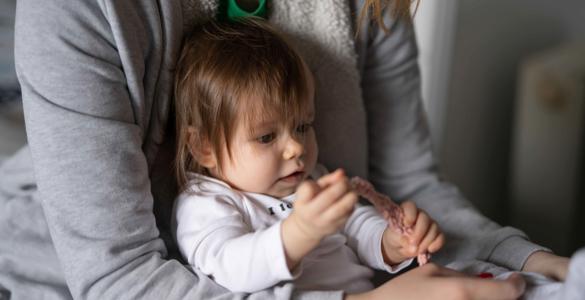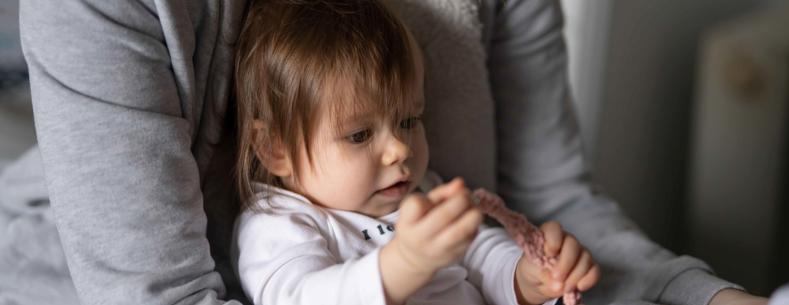The First Minister's five priorities, as set out in his Welsh Labour leadership campaign, included a commitment to ‘Give all children in Wales a strong start, focusing on the first 1,000 days of a child’s life’.
In the first of our two articles exploring the first 1,000 days of a child’s life, we explored the factors affecting babies’ and young children’s development. Here, in our second article, we look at what support may be required and provided during the first 1,000 days for children affected by disability.
As acknowledged in the First 1,000 Days Public Health Approach, providing effective early support for parents and children can contribute to fostering the secure and nurturing environments required for a child’s social and emotional development.
Welsh Government policies
First Minister, Vaughan Gething MS reiterated the Welsh Government’s stated commitment to children’s healthcare in June 2024:
The Welsh Government is committed to ensuring high-quality healthcare provision for children and young people in Wales. A comprehensive range of policies and programmes, implemented across the Government, plays a pivotal role in improving health outcomes and promoting child health and well-being for children right across Wales.
The health and wellbeing of disabled children is impacted by a number of Welsh Government policies including:
- The Rights of Children and Young Persons (Wales) Measure (2011) which places a duty upon Welsh Ministers to have due regard for the United Nations Convention on the Rights of the Child (UNCRC). In summary, Article 23 says “a child with a disability has the right to live a full and decent life with dignity and, as far as possible, independence and to play an active part in the community. Governments must do all they can to support disabled children and their families. “
- Together for Mental Health (2012), Mental health delivery plan, and draft strategy which aim to improve access to support for the emotional and mental health wellbeing of babies, children, and young people, and prevent poor mental health.
- The Well-being of Future Generations Act (2015) which includes a legal obligation for public bodies to work together towards seven well-being goals, including creating a healthier and more equal Wales.
- Healthy Child Wales Programme (2016) which includes a core aim to ‘promote bonding and attachment to support positive parent-child relationships resulting in secure emotional attachment’ (p.5)
- A Healthier Wales: our plan for Health and Social Care (2019), the supporting Workforce Strategy and the resulting:
- National Workforce Implementation Plan which sets out actions to improve staff retention, including improving wellbeing, and continued investment in education and training.
- Maternity and Neonatal Safety Support Programme in Wales (MatneoSSP Wales) (2022) which aims to ensure clear and consistent approaches to maternity and neonatal safety.
- The Programme for Government further defined by the Children and Young People Plan
Since 2007, the Welsh Government’s early years Flying Start Programme has had a focus on health visiting and early language development in deprived areas.
Stakeholder views on policy and provision
Specialist community paediatric services aim to provide high-quality, specialised services for children with delays in their development and children with complex health needs and learning difficulties. These multidisciplinary teams include community paediatricians, specialist nurses, and allied health professionals such as audiologists, dieticians, speech and language therapists, occupational therapists and physiotherapists. These professionals aim to improve function and maximise children’s potential to participate in all aspects of their lives from the neonatal period onwards.
Recruiting and upskilling the child health workforce is therefore seen as essential to maximise the outcomes for disabled children in the first 1,000 days and beyond. Health visitors also play a vital role in supporting parents and families of pre-school children and identifying health needs. Health visiting services are facing rising caseloads and expectations against the backdrop of limited funding. The Flying Start Programme is intended to provide enhanced health visiting services and speech and language support.
The Royal College of Paediatrics and Child Health (RCPCH) has expressed disappointment at what they see as a lack of focus on children’s healthcare within workforce implementation plans. They identified their key priorities for Wales in their State of Child Health 2020 report. Their recommendations of relevance to the first 1,000 days are:
|
Reduce child health inequalities Poverty and inequality impact children’s education, housing and social environments in turn impacting their health outcomes. The RCPCH calls for a revised strategy with national targets to reduce child poverty rates. Prioritise public health, prevention and early intervention Focus on prevention and delivering early intervention services. The RCPCH calls for continued investment in the Healthy Child Wales Programme, to ensure all contacts with eligible children take place. Build and strengthen local, cross-sector services to reflect local need Infants, children, young people and families should have equitable access to local community cross-sector services, resources, advice and support to support their health and wellbeing. The RCPCH urges the Welsh Government to provide renewed investment in services for children and families, which support the child’s school readiness. |
Demand for services outstrips capacity
The RCPCH report: Workforce census: Focus on Wales (2019) stated that increasing demand for paediatric consultants required an increase of 42% to a full time equivalent workforce of 249.4. As of December 2023, the number of FTE paediatric consultants was 213.4 a shortfall of 36. Shortfalls of other health professionals, such as educational psychologists and speech and language therapists, impact on the multidisciplinary teams in Community Child Health (CCH) services.
The Royal College of Speech and Language Therapists (RCSLT) report that demand for speech and language therapy has increased since the pandemic, and there are less SLTs per head of the population in Wales than in any other part of the UK. Speech and language therapists work with feeding and communication needs from birth throughout the lifespan. 33% of children in Wales with additional learning needs have speech, language, and communication needs (SLCN), which is the most common type of learning need. Lack of identification and inadequate support for SLCN contributes to poorer outcomes in adulthood including lower educational attainment and employment outcomes, with 60% of young people involved with the youth justice system having SLCN.
Addressing funding and recruitment challenges in child heath is seen as essential in the light of audits of neonatal provision. As set out by the RCSLT, these audits highlight Allied Health Professional (AHP) shortages within teams and lack of ring-fenced funding for therapies as a significant concern. The seven health boards in Wales are not meeting the British Association of Perinatal Medicine standards for speech and language therapy provision according to the Royal College of Speech and Language Therapists Cymru. The all-Wales neonatal AHPs forum aims to ensure that AHPs are included in the development of the new strategic perinatal workforce plan.
Whilst the number of births in Wales is at a historic low, the number of children surviving with complex support needs has seen a small but steady rise. It should be expected that as a proportion of the total, there will be more children requiring access to health, education and social care services.
In light of this it would seem that adequate resources will be critical to meeting the Welsh Government’s heightened priority to give children a “strong start” during the first 1,000 days and beyond.
Relevant Senedd scrutiny
Our previous article looked at poverty, disability and the first 1,000 days. We know the Welsh Government’s Child Poverty Strategy for Wales 2024 sets out what it plans to do to support disabled children, with its next progress report due in 2025. More recently in June, the Senedd’s Health and Social Care Committee heard from the new Minister for Mental Health and Early Years about her initial priorities for the first 1,000 days and the Healthy Child Wales Programme. The Equality and Social Justice Committee’s ongoing scrutiny of Child Poverty and the Children, Young People and Education Committee’s anticipated report on Do disabled children and young people have equal access to education and childcare? should add to the picture of the first 1,000 days and disability in Wales.
Article by Sarah Hayward, Senedd Research, Welsh Parliament
Senedd Research acknowledges the parliamentary fellowship provided to Sarah Hayward by the Economic and Social Research Council which enabled this article to be completed.






